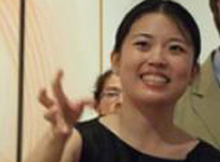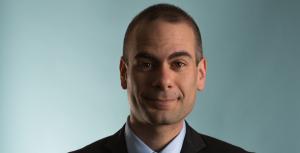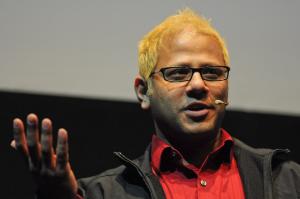By Paul Voosen, The Chronicle of Higher Education
Sean Pue had an Urdu problem. An assistant professor of South Asian literature at Michigan State University, Mr. Pue was searching for a way to automate his analysis of classical Urdu's internal meter. As an adherent of the small but growing digital humanities movement, he had some coding proficiency, but not enough: Urdu poetry is not based on stress, but on contextual patterns of syllables. His program ran slow, and the problem proved to be, in computational argot, "combinatorially explosive"—the variables piled up, bogging it down.
While at his daughter's ballet class, Mr. Pue mentioned his difficulties to Tracy K. Teal, a microbial ecologist and postdoc at the university. The two had never seen each other on campus, but their girls, best friends, brought the families together. Ms. Teal began to see analogies between how the information in DNA causes proteins to form and the chain of transformations Mr. Pue used to extract Urdu's scansion. Perhaps, she offered, she could help?
The duo were soon in for a surprise, though. The central dogma of biology—that DNA makes RNA makes protein—had nothing on the ballads of Mirza Asadullah Khan. "As we discussed it further," Ms. Teal said, "we actually realized that Urdu poetry is a lot more complicated."
That revelation was one of many packed into a small, two-day meeting at the University of Maryland at College Park that brought together, for the first time, scholars engaged in the digital humanities with scientists from the data-heavy trenches of computational biology.
Sponsored by the National Endowment for the Humanities and the National Institutes of Health, among others, and held by the Maryland Institute for Technology in the Humanities, the symposium, titled "Shared Horizons," sought to present the fields together as equals. In application, though, it offered lessons to digital humanists from biology, a field that has already gone through its own, sometimes painful, computational revolution.
Read more









